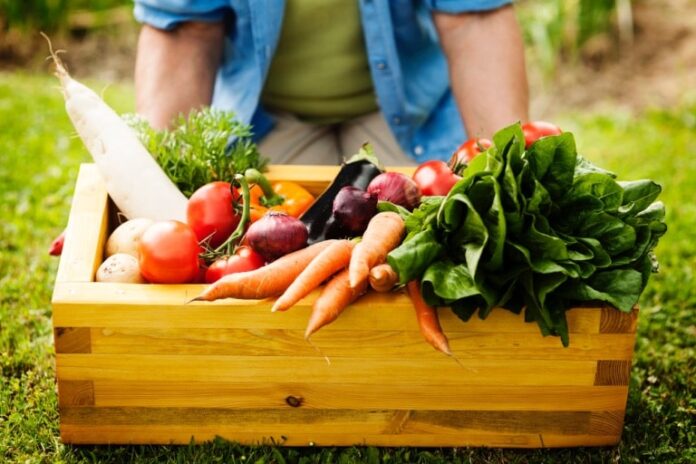When you shop for vegetables, you might wonder how to tell if they are truly organic. This concern is crucial for those looking to maintain a healthy diet. For example, when buying organic garlic bulbs, how can we ensure they are genuinely organic? This article will guide you through the essential checks to ensure the vegetables you buy are organic.
Understanding Organic Certification
When looking for organic vegetables, the first thing to check is to see if the producer or farm has a current certified organic certificate. Certifiers such as the USDA, CCOF, Real Organics or Seed Integrity Pledge for Safe Seeds GMO/Toxin Free USA have member roosters that you can look up to see if the members are in good standing on their websites.
These certificates are crucial because it means the vegetables have been grown without harmful chemicals, synthetic pesticides, or genetically modified seeds. Different countries have different organizations that provide these certifications after physically checking the farms onsite regularly.
Certifiers have strict labeling requirements that must be approved before reaching the food distributors. Always make sure to see this label on the packaging or ask the seller about it if you’re buying loose vegetables.
Organic certifications are not given easily. Farms must follow strict organic farming guidelines for several years to qualify. They are regularly inspected to ensure they continue to meet these standards.
Checking the Price Look-Up (PLU) Codes
Ever noticed the stickers on fruits and vegetables? These carry the Price Look-Up (PLU) codes, which can tell you a lot about how the vegetable was grown. If the code starts with the number “9” and has five digits (like 94011 for organic bananas), it means the produce is organic.
This method is very straightforward and helps you quickly identify organic vegetables at the store. However, keep in mind that not all organic produce might be labeled with these codes, especially those sold directly by small farmers at markets.
Knowing the Source of Your Vegetables
Getting to know where your vegetables come from can give you more confidence in their organic status. Shopping at local farmers’ markets allows you to meet the growers directly. You can ask them how they farm and what methods they use.
Sometimes smaller farms practice organic farming but haven’t gone through the certification process because it’s expensive and time-consuming. By talking to the farmers, you can learn about their practices and decide for yourself if you trust their methods.
Observing the Appearance of Vegetables
Organic vegetables often look different from those grown with the help of synthetic chemicals. They might be less uniform in size and shape, have some blemishes, or a little bit of dirt. These are signs of natural growth without chemical interventions.
For example, organic garlic bulbs might not all look identical or perfectly clean. These variations are a good indicator that the vegetables have been grown in a more natural environment.
Researching Organic Brands and Farms
Conducting research on the brands and farms that sell organic produce can significantly boost your confidence in the vegetables you buy. Many reputable organic brands are transparent about their farming practices, often sharing detailed information through their websites or social media channels. By familiarizing yourself with these brands, you can identify those who are truly committed to sustainable and organic farming.
This research is invaluable because it helps you understand the farming philosophies and practices that go into the production of organic vegetables, ensuring that you support companies that align with your health and environmental values.
Examining Farming Techniques
Further assurance of organic quality can be gained by examining the specific farming techniques used to grow the vegetables. Organic farming is characterized by practices like crop rotation, the use of green manure and compost, and the avoidance of chemical pesticides. These methods not only maintain soil health but also ensure the sustainability of farming operations.
By learning about these techniques, you can better appreciate the effort that goes into producing high-quality organic produce and feel more assured about the authenticity of the vegetables you purchase.
Seeking Out Transparency and Traceability
Lastly, transparency and traceability in the supply chain are critical in verifying that vegetables are truly organic. Producers who are open about their processes and offer clear traceability from the farm to your table are more likely to be reliable. This transparency allows you to trace the origin of your produce, providing a clear picture of its journey and affirming its organic status.
Armed with this knowledge and these verification strategies, you can shop for organic vegetables confidently, knowing exactly what to look for and the right questions to ask. This not only helps in making healthier dietary choices but also supports sustainable agricultural practices that benefit the environment.
By expanding your knowledge and using these tips, you can be more confident that the vegetables you buy are truly organic. This not only supports your health but also promotes sustainable agriculture.
